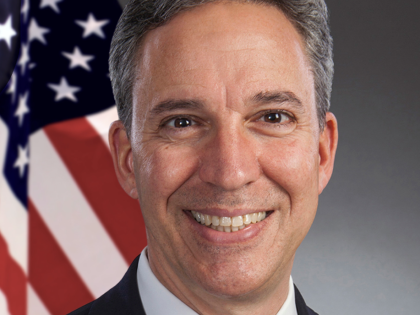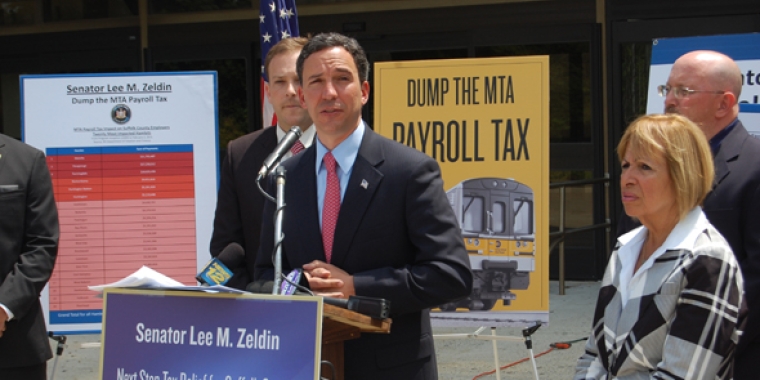
Senator Martins" Eliminating the MTA Payroll Tax Is Next

From the Long Island Business News
By Jack M. Martins
New York recently completed an historic legislative session, making significant progress toward returning our state to fiscal health. We balanced the budget, closed a $10 billion deficit by cutting spending and passed a 2 percent property tax cap. The goals were to ease taxpayer burden, spur economic growth and ultimately make New York the kind of place people move to, not away from.
It was great groundwork but now comes the heavy lifting. Any further improvement in our economic condition must begin with New York’s business climate, but the reality is we’re mired in bureaucratic red tape with taxes and fees so high that even the most hardened entrepreneurs feel faint. Most recent among these is the MTA payroll tax.
You know the story. In 2009, the state decided to once again bail out the floundering Metropolitan Transit Authority by imposing a tax on the salary of every employee, whether they use mass transit or not. It cost Long Island $229 million in 2010 alone; $229 million that could have been invested in research, new equipment and technology, job growth or even the delivery of much-needed services. To put it more concretely, an organization like Long Island Cares, which delivers more than 6 million pounds of food to hungry Long Islanders each year, will feed 3,700 fewer people because of the tax.
I see this type of impact over and over again. That’s why we proposed legislation that will phase out and ultimately eliminate the tax over a period of three years for the areas outside New York City. It calls for immediately eliminating the tax for all small businesses with 25 or fewer employees. For all others, the tax would be reduced from .34 percent of payroll to .23 percent in 2012, followed by .12 percent in 2013 and in 2014 it would be totally eliminated.
Those who predict MTA fare increases and service cuts should consider that this tax revenue is a fraction of the MTA’s $14 billion budget. Having spent months studying its operations and meeting its chief officers, I know the MTA can most certainly find the savings, provided it is given the time, via this sensible, staggered approach.
Repealing the tax would not only pump more than $840 million back into our state economy, it would send a signal to enterprise that New York is back in business.


